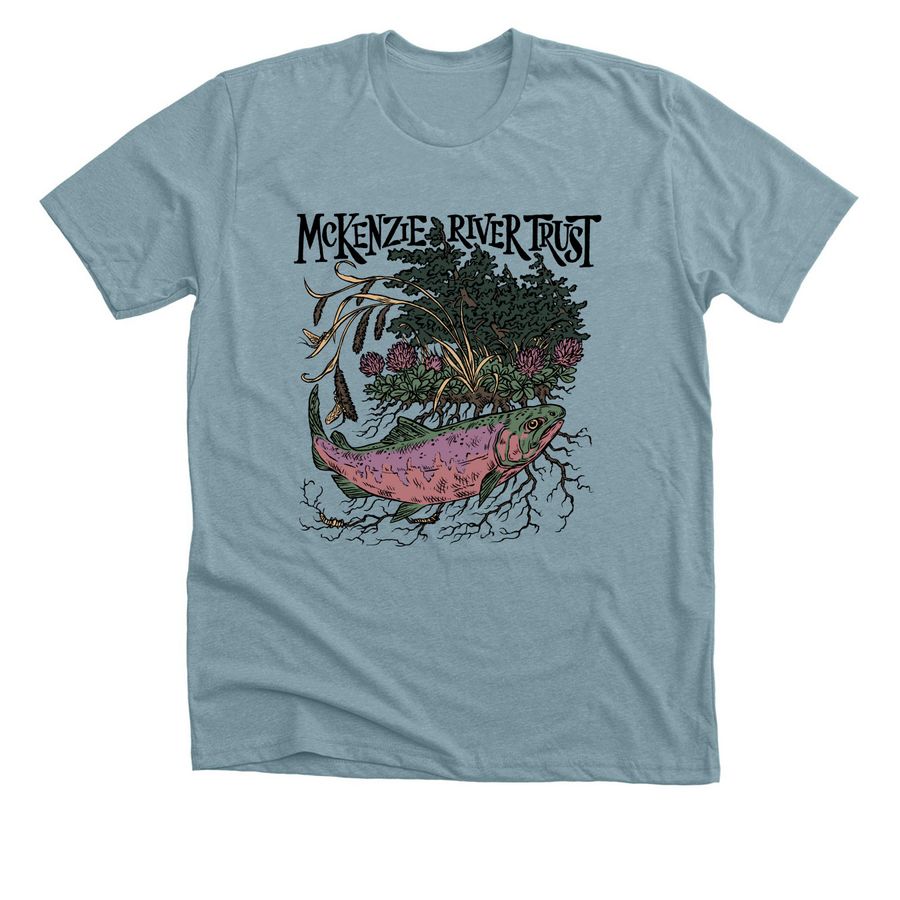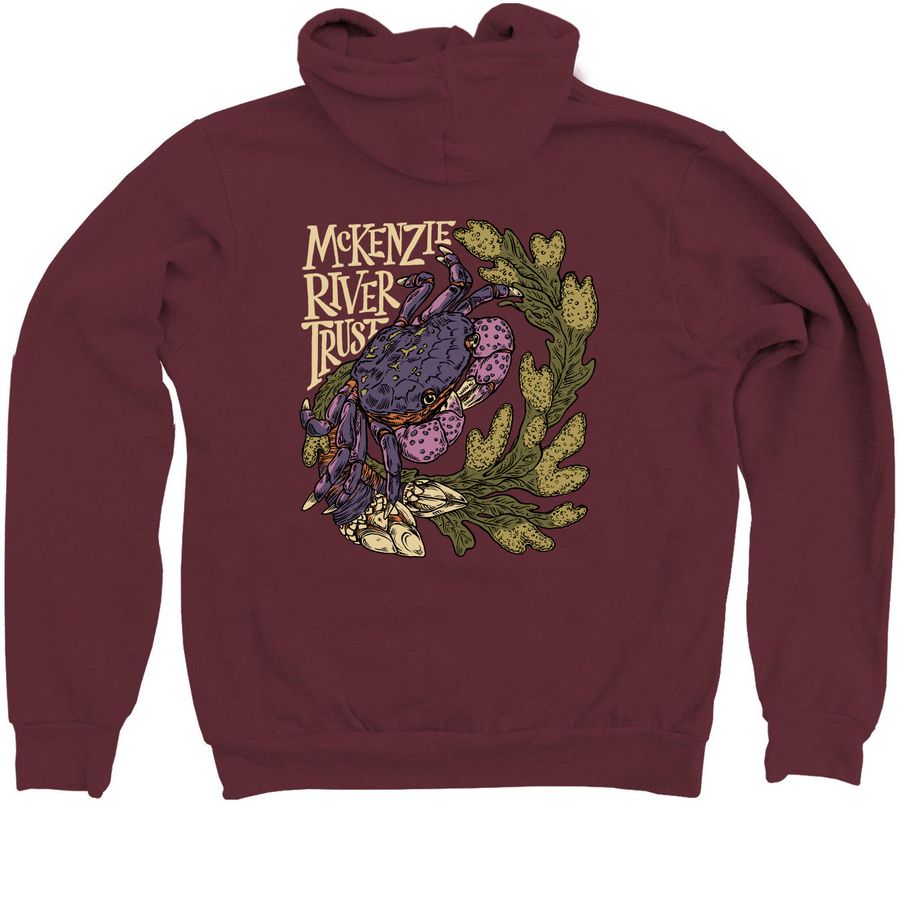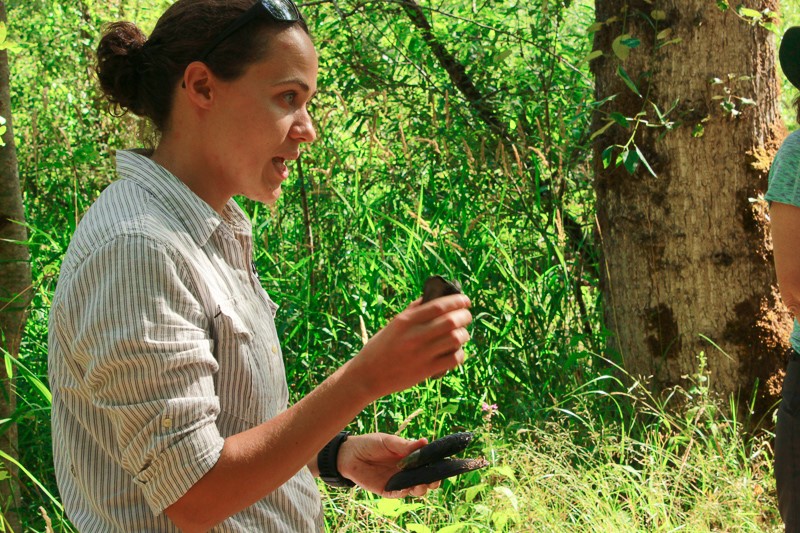
On Friday, August 2nd, MRT staff and volunteers met at our Finn Rock Reach property to learn about freshwater mussels. We were lucky to host Emilie Blevins of the Xerces Society. She gave a talk about the importance of mussels to watershed environments and showed volunteers what to look for during a survey.
Emilie provided the group with a guide to freshwater mussels and brought some examples of mussel shells found in Oregon. The western pearlshell is the species we were most likely to find in our Finn Rock Reach survey. The Xerces society focuses on conserving invertebrate habitats.
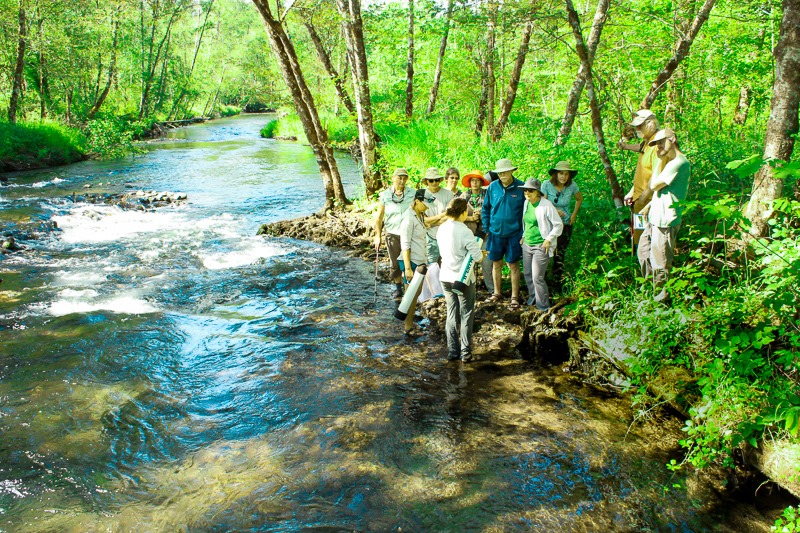
The Importance of Freshwater Mussels
Freshwater mussels provide food for a variety of wildlife. In addition, they are beneficial to water quality, processing nutrients, and supporting habitats. They filter tiny suspended materials such as algae, bacteria, and zooplankton that bottom dwelling animals can feed on.
One mussel can filter up to 15 gallons of water a day. They can also live to be over 100 years old! Due to their age, they also retain essential minerals. Mussels may improve habitat quality and diversity of benthic macroinvertebrates (Known as “benthos”) like caddisflies, dragon & damsel flies, and crayfish. Mussel movements stir oxygen and nutrients into the sediment and water, similar to how earthworms in your garden help your soil. Further, mussel shells provide a surface for algae and animals (such as sponges and insect larvae) to attach.
Mussels played an important role for humans historically. Native populations ate mussels in seasons when food was scarce and used shells for tool parts. Mussels were also exploited commercial for the button industry in the 19th century and later to cultivate freshwater pearls.
Conservation of Mussels
There are nearly 300 species of mussels documented in the United States. Thirty five species have gone extinct over the last century. The Endangered Species Act lists 25% of mussel species. States across the country list 75% of mussel species as threatened or endanged.
Support has grown for mussel conservation in recent years, as scientists and conservationists are learning the strong correlation between healthy mussel beds and healthy salmon runs.
In Oregon, the Umatilla and Warm Springs Native American tribes are conducting research and working to conserve mussel populations. Other organizations like the Willamette Riverkeeper and the Xerces Society also conduct mussel research. McKenzie River Trust hopes to find or restore mussel beds in our properties along the McKenzie River at Finn Rock Reach and beyond.
Mussel Surveying
People are welcome to search for mussels and report any findings with photos to the McKenzie River Trust. Be sure not to remove the mussels from their habitat or harm them in the process of your discovery.
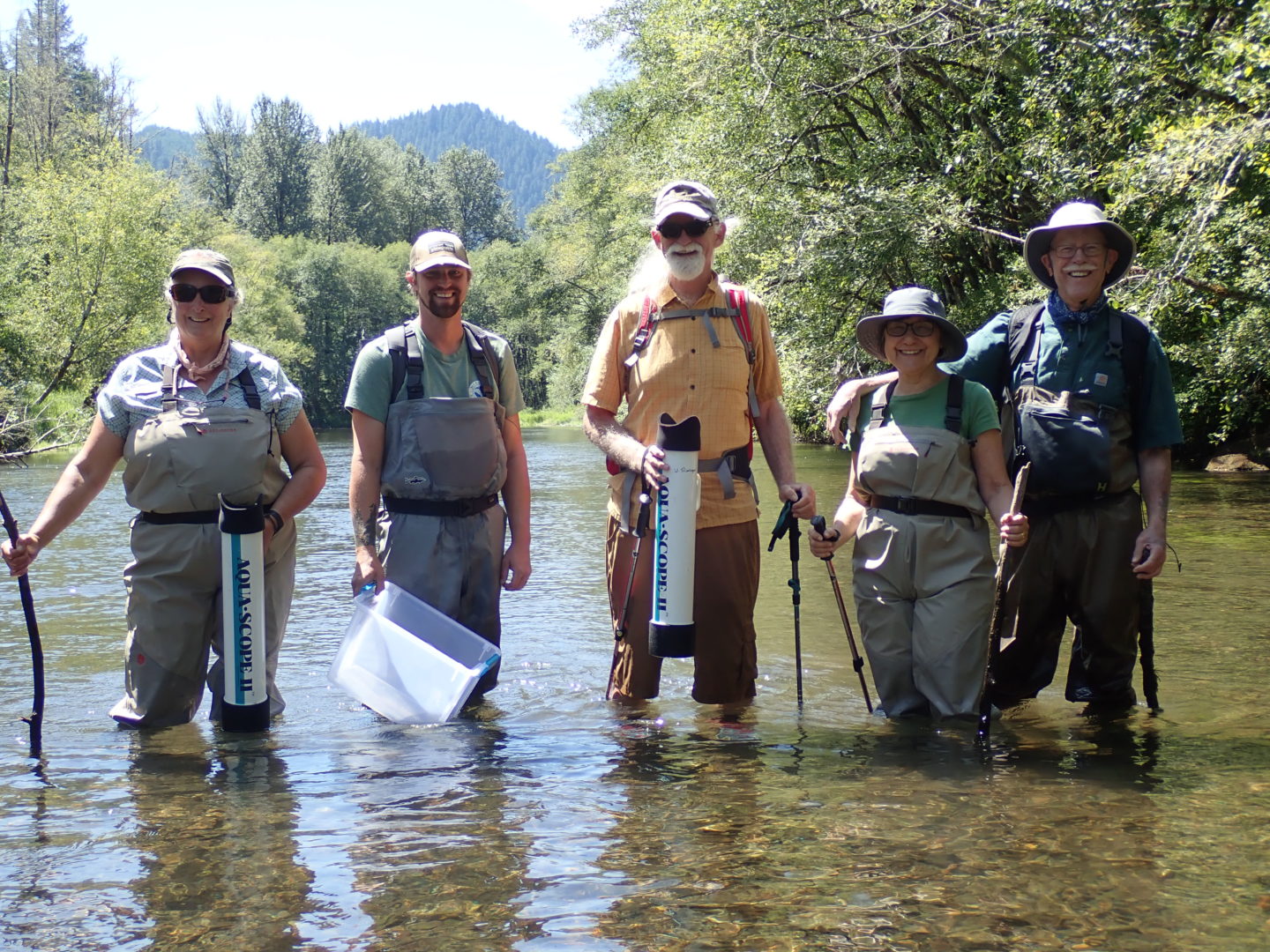
Emilie taught the Friends of Finn Rock group to look for mussels in shallow, slow moving waters. A glass bucket or aqua viewing tube helps to see under the water. For advanced swimmers, snorkeling is also an option for surveying mussels. While our group didn’t find any mussels in this survey, the life we found was exciting. They noted seeing Chinook salmon hatchlings, caddisflies, a lamprey, and crayfish.
Would you like to participate in future community science surveys and projects? Sign up for our volunteer team today!

